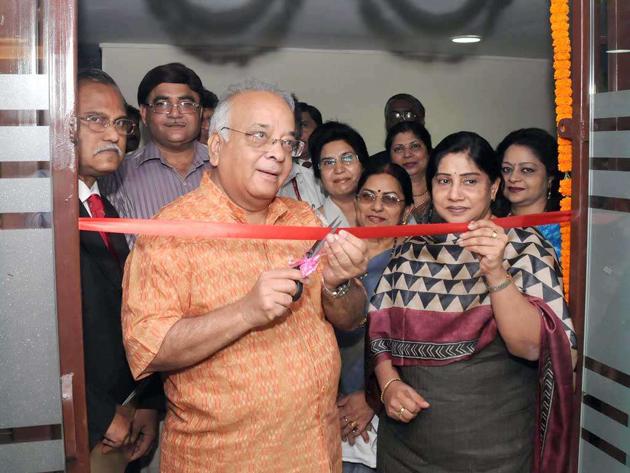Mushirul Hasan: Scholar, liberal, patriot
He is now gone; but his books will endure long after the hate-filled politicians of his home state are forgotten
I first saw Mushirul Hasan in the Uttar Pradesh State Archives in Lucknow. The year was 1982. We sat on adjoining tables, each examining our respective files; however, as a new doctoral student, I was too shy to approach an established scholar with a PhD from Cambridge and several books under his belt.

The next morning, a student from the Jawaharlal Nehru University arrived to work in the same archive. When I told him that Professor Hasan had been there the previous day, he said, ‘Wo to liberal hain’, the English word expressed in puzzlement, albeit with a tinge of contempt. In Kolkata, where I studied, and in JNU, where my friend studied, professors of history were decidedly not liberals. They were Marxists; some close to the CPI, others to the CPI(M), yet others to the CPI(ML). Liberalism in these places was unknown and unmourned.
At first sight Mushirul Hasan seemed altogether uncombative. However, towards the end of that decade, he expressed his liberalism in a strikingly direct manner, when he defended the right to free circulation within India of Salman Rushdie’s The Satanic Verses. He thought the book was bad and even offensive, yet opposed the ban imposed by Rajiv Gandhi’s government, which had come under pressure from fundamentalist mullahs.
Professor Hasan’s defence of Rushdie’s right to free expression provoked outrage among the illiberal sections of his own community. They descended on his university, the Jamia Millia Islamia, and demanded that he be expelled. Physical threats were also issued. For several years at a stretch Professor Hasan could not enter the campus. But he could, and would, continue to teach and write.
In time the madness passed, and Professor Hasan was allowed to return to Jamia. He eventually became the Vice Chancellor of the university, where he gained respect for his considerate treatment of staff as well as students. There is a wonderful portrait of him in Neyaz Farooquee’s book, An Ordinary Man’s Guide to Radicalism. Growing up in an orthodox home, Farooquee had been taught to regard Hasan as a heretic for his defence of Rushdie. Now he began to see him in a very different light, as the Vice Chancellor stepped in to stop policemen harassing ordinary students merely because they grew beards and were Muslim.
Mushirul Hasan contributed significantly to the enhancing of Jamia’s reputation, making it more hospitable to new disciplines and more open to Indians of different backgrounds and sensibilities. Later, he took his institution-building skills to the National Archives of India. He was the NAI’s finest director-general in living memory, greatly enhancing its collections and making them more accessible to scholars. He personally supervised the transfer of thousands of files from different ministries, thereby encouraging scholars to seriously investigate the crucial early decades of Independence.
I myself first knew Mushirul Hasan through his books, such as his thoroughly researched biography of that ‘nationalist conscience’, Dr MA Ansari. I got to know him in person when he was working on Legacy of a Divided Nation, his rich and empathetic study of those Muslims who chose to stay on in India after Independence. His early studies of nationalist politics had been based principally on archival documents; for this book, however, he also drew upon poetry and fiction to illuminate the hopes and anxieties of India’s largest and most vulnerable minority.
When we worked together in the Lucknow archives, Mushirul Hasan was a classical liberal and I a socialist. Over the years, I moved towards the centre while he turned towards the left. At some point we met, ideologically; but by the end he was possibly slightly more to the left than I. However, our conversations were rarely about politics. Sometimes, we discussed the business of history-writing — what materials were to be found in which remote repository, for example. At other times, we talked of the legacy of our nation’s founders. (Both of us began as Nehruvians but developed a strong interest in Gandhi.) We also spoke about cricket, a game both of us had played at university and keenly followed in our unathletic middle age.
After his retirement from Jamia, Mushirul Hasan continued to research and write. Sadly, in 2014 he met with a serious road accident, and could not work thereafter. Yet by this time he had produced more books than an entire team of research scholars. Apart from his own, archivally grounded volumes, he edited an excellent anthology on Partition as well as several volumes of the Selected Works of Jawaharlal Nehru.
In person, Mushirul Hasan was gentle and soft spoken. He carried his learning lightly, and leavened it with wit. We were raised in the same state, the then undivided Uttar Pradesh, so our conversation was always a mix of English and Hindustani. In his character and in his views, Mushir exemplified the Ganga-Jumni tehzeeb, the courteous, refined, and civilised sensibilities of the people living in the lands between those two great rivers. The rising tide of communal bigotry in his home state would have horrified him. The Uttar Pradesh of today, led by Hindutva ideologues who give open sanction to marauding mobs, is, in moral as well as political terms, altogether opposed to the UP I once knew well and Mushir knew even better.
Back in the 1980s, liberal intellectuals faced a mostly benign condescension from the scholars to their left. In recent years they have faced outright hostility from the ideologues to their right. For his many friends and admirers, the one consolation of Mushir’s last, extended, illness was that he was largely insulated from the violence and bigotry spreading across northern India. He is now gone; but his books will endure long after the hate-filled politicians of his home state are forgotten.
Ramachandra Guha is the author of Gandhi: The Years That Changed The World.
The views expressed are personal




